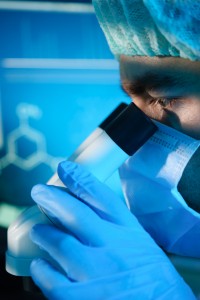The U.S. Supreme Court recently held that police officers may take a DNA sample from individuals arrested on suspicion of crime, using a cheek swab to collect cells for analysis.
The case heard by the Court focused on a 2009 Maryland case in which a man was arrested on suspicion of assault. The police took a DNA sample along with photographs and fingerprints while booking him at the local jail. Upon testing the DNA sample, they found that it matched a sample collected from the scene of an unsolved rape case that had occurred in 2008.
 The Court of Appeals of Maryland ruled that the DNA sample was taken in violation of the man’s Fourth Amendment rights and could not be used in the trial convicting him of the 2008 rape. The U.S. Supreme Court, however, reversed this decision. The Supreme Court ruled that taking a DNA sample from a person who has been arrested on “probable cause” is not a violation of the person’s Fourth Amendment right to be free from unlawful search and seizure.
The Court of Appeals of Maryland ruled that the DNA sample was taken in violation of the man’s Fourth Amendment rights and could not be used in the trial convicting him of the 2008 rape. The U.S. Supreme Court, however, reversed this decision. The Supreme Court ruled that taking a DNA sample from a person who has been arrested on “probable cause” is not a violation of the person’s Fourth Amendment right to be free from unlawful search and seizure.
Several justices, however, disagreed with the Court’s decision. Their concerns included the fact that, unlike fingerprints or photographs, DNA can be used for far more than merely identifying individuals, and that DNA samples may not be limited to “serious crimes” in all jurisdictions.
The Fourth Amendment is just one source of vital criminal trial rights. At The Bussey Law Firm, P.C., our dedicated Colorado Springs criminal defense attorneys strive to protect all the rights our clients have to the fullest extent possible. If you’ve been charged with a crime, don’t wait: call us today at (719) 475-2555. Your initial consultation is free and confidential.
